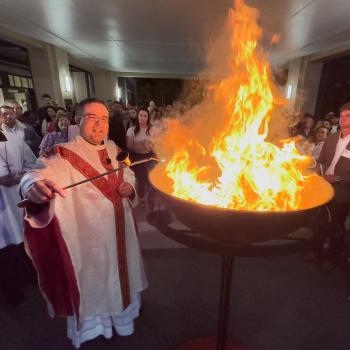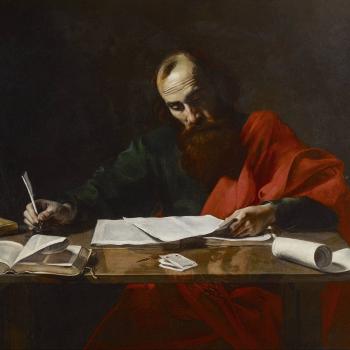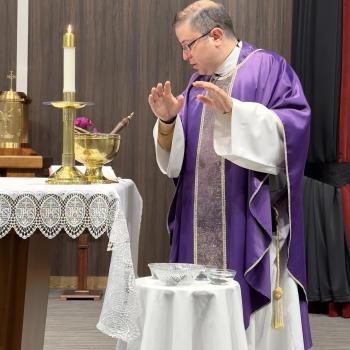I have been keeping up with the news regarding Alabama’s new strict immigration law. I began following it after the two Catholic bishops of Alabama along with Episcopal and Methodist bishops filed a lawsuit to stop the state’s new immigration law in August earlier this year. The religious leaders believed that the enforcement of the new law would violate first amendment rights of church members, violate the right of free assembly and interfere in the ability of the churches to minister to members especially in the celebration of sacraments and counseling.
USA Today’s cover story yesterday addressed the impact of the new law in the state, mostly noting the negative economic impact it is having. The following lines from the article however bring forth the basic human dignity issues these harsh laws often ignore and the difficulties of working with the present immigration system of which many people are unaware:
“Maria, 34, an undocumented native of Guatemala… has kept her 11-year-old daughter home from school several times since the law passed. She says she’s terrified of being separated from her daughter and 1-year-old son and deported without them.
“She says she applied for permanent residence status in 2000 and is still awaiting an answer. Both her children were born in the USA and are citizens.
“She leaves her home only to make quick trips to the local Catholic church, the only place that quiets her anxiety. ‘I have faith in God,’ she says. ‘He’s the only one who empowers us.’
“Others have applied for visas but are still waiting or raising money to finalize the transactions. It took Russellville, [Alabama] resident Angelica Perez, 21, two years and $14,000 in attorney, travel and filing fees to land a green card for her husband.”
One of the most controversial measures of the Alabama law was thankfully blocked by a Federal Court of Appeals. This part of the law required state officials to check the immigration status of students in public schools. In other words, public school officials would become virtual federal immigration services agents. The court also blocked the measure making it a misdemeanor for immigrants to not complete or carry an alien registration card. This would even affect me, if I were asked by a police officer to show my alien registration card (greencard) and I happen to not have it with me (even if I do have a valid Georgia license) I would be charged with a misdemeanor.
All these debates lead to a simple question which the United States Catholic Conference of Bishops has answered well, “Why don’t they come here legally?”
I recommend the brief linked to above. If you don’t have the time to read it, read the summary I’ve prepared below by copying the main points of the brief.
The reason why they don’t come here legally is because under current immigration laws, no “line” for lawful immigration to the United States actually exists for the majority of our immigrants. Under the current immigration legal framework, lawful immigration to the United States is restricted to only a few narrow categories of persons. These categories include:
1. A qualified family member in the United States may petition to bring a foreign‐born family member to the country lawfully.
2. Immigrants fleeing political persecution or a well‐founded fear of future persecution on account of their race, religion, membership in a particular social group, political opinion or national origin may seek political asylum or qualify for refugee status.
3. Workers sponsored by a U.S.‐based employer to work and live lawfully. These categories are limited to multinational executives and professors; those with advance degrees, the exceptional in the arts, sciences or business; and narrowly‐defined, specialized workers.
The problem? It is impossible for low-skilled workers (of which we have great need in the United States) to enter the country legally unless they marry an American (which some do just to get their papers and then divorce).
The U.S. Conference of Catholic Bishops believes that current immigration laws must be reformed to meet our country’s need for low‐skilled labor and facilitate the reunification of families.
Definitely there is not easy solution to the immigration problem, but all people can agree on one thing: the current system is broken and must be revamped. I experience almost daily how immigrants (legal and illegal) suffer from the effects of a burdensome and expensive system. Accommodations should be made for those who are contributing to the good our of society. After all, the United States is a country of immigrants.
***Please remember not to leave any anonymous comments, they will not be published. Thanks***
















